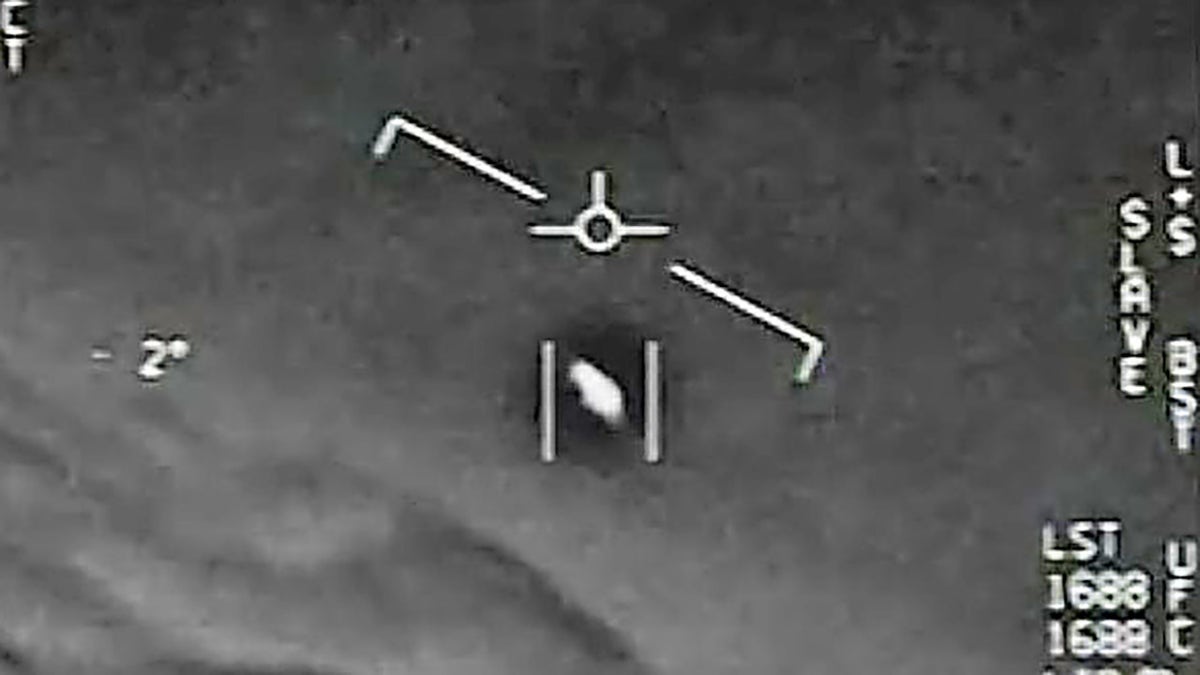Aliens not ruled out as being behind recent UFO sightings
Leaked information from intel officials says there is no evidence that aliens are responsible for recent UFO sightings, but they are also not being ruled out. Investigative filmmaker Jeremy Corbell reacts.
Even if the UFOs that hundreds of military pilots and thousands of everyday citizens have spotted are extraterrestrial in origin, they are likely far too complex for us to understand, UFO experts told Fox News in the wake of an inconclusive report released Friday by the Director of National Intelligence on unidentified aerial phenomena (UAP).
The report, which was ordered by Congress last year, examined 144 reports of UAPs from U.S. government sources since 2004.
Eighty of the reported incidents were observed with multiple sensors, including "radar, infrared, electro-optical, weapon seekers, and visual observation."
In 18 of the incidents, "unusual UAP movement patterns or flight characteristics" were observed, including the ability to "remain stationary in winds aloft, move against the wind, maneuver abruptly, or move at considerable speed, without discernable means of propulsion."
Despite the intriguing sightings, U.S. intelligence analysts could only explain one of the sightings, which was a large balloon deflating.
Colonel John B. Alexander, who developed an interagency task force to explore UFOs while in the U.S. Army in the 1980s, said that if the phenomena are extraterrestrial, they are likely far beyond what humans are capable of understanding with our current faculties.
"Whatever this is, it is more complex than we can possibly imagine," Alexander told Fox News. "We're not at the point of even asking the right questions, much less expecting simple answers."

Military pilots have seen dozens of UFOs in recent years. (Department of Defense)
Seth Shostak, a senior astronomer at the SETI Institute who is doubtful that these UAPs are extraterrestrial, pointed out that aliens would nonetheless have technology that is incomprehensibly more advanced than what we're accustomed to.
"The universe is three times as old as the earth. There's plenty of time for societies to arise that are not just a thousand years more advanced than we are, but they could be a billion years more advanced than we are," Shostak told Fox News.
"So if you ask yourself, ‘What could that kind of a society do?’ There are things they could do that we simply can't conceive of."
Shostak bets that humans will have better luck looking to the stars to find aliens than scouring our own atmosphere.
"We're not looking for them a couple of miles up. We're looking for them lightyears away," Shostak said. "We look at star systems, other suns that are relatively nearby, that are either known to have planets and maybe planets like earth."
A study published in The Astronomical Journal last year found that there are likely billions of Earth-like planets just in our galaxy.
CLICK HERE TO GET THE FOX NEWS APP
Even if these UAPs aren't proof of extraterrestrial life, Alexander agreed that aliens are out there, in some form or another.
"Is there life elsewhere in the universe? The answer is yes, and that's not speculation, that's math," Alexander said. "That's just based on the number of Earth-like planets or inhabitable planets that are out there."













































